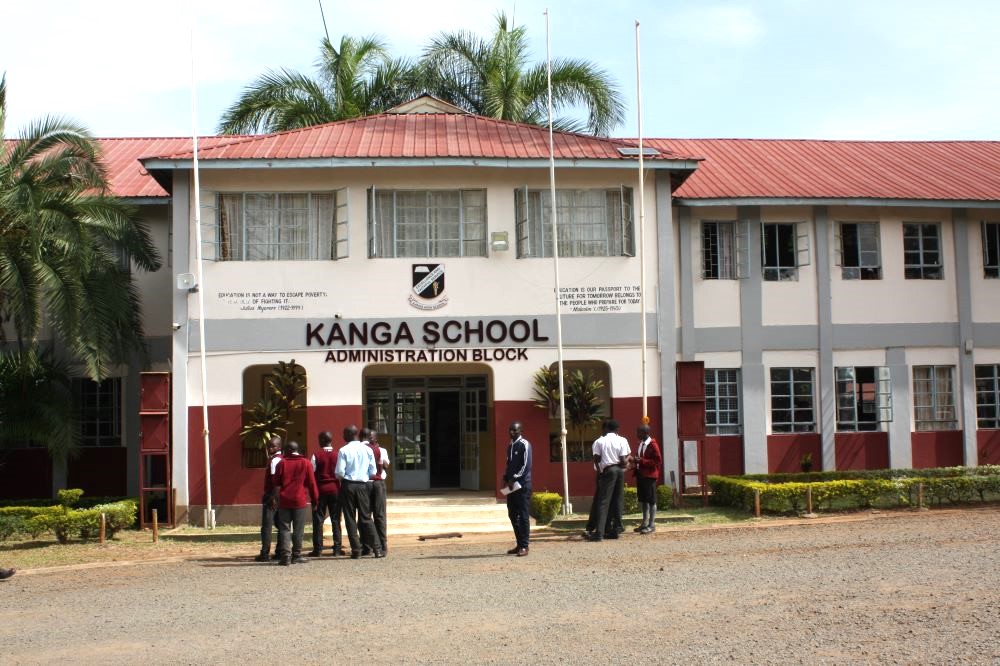Remain open and curious; expand your horizons and explore the world of knowledge and skills with your students; and seek not to ‘cover the syllabus’, but to ‘uncover’ the world together with your students.
Mr Ng Chee Meng, (then) Minister of Education (Schools) in Singapore, at a Principals’ function in 201. A Play by Friends’ School Kamusinga during the just concluded 62nd Kenya Drama and Music Festival in Embu County triggered a lot of thinking about the appropriate nexus between work and life in students, and employees.
Discussions about work and life balance is where responsibility lies to ensure that employees have a good work and life balance. The conventional wisdom is that employers have a moral responsibility to the health—physical, and mental—of their employees. Apart from this moral responsibility the stressed-out employees are less productive.
The prescription, the play the students of Friends School Kamusinga performed, focused more on what happens to students when the schools give excessive amounts of homework to students while on their half term.
The school calendar is divided into three terms in a school year with April, August and December school holidays. The government provides short breaks within each term to allow learners to re-join their respective families and relax.
The half term or school holiday provides a mental break from the rigours of learning—pending recharging for the next session of learning. In the Play, the students proceed on half term as stipulated in the school calendar.
However, the school saddles the students with homework to be completed before they resume learning—a week later. This is the crux of the drama. Aware of the homework the son has come home with, the Father, who himself is stressed with a huge amount of work, cannot allow the son to visit the grandfather back in their rural village.
The father feels that failure to complete the homework will affect the expected performance of his son. The father wants a straight A from his son in the national examinations.
He has hired his teacher to provide extra tuition during this short period—a teacher who himself is stressed by the dynamics associated with teaching. The student, the teacher, his father and mothers are caged in their respective work. They are clearly stressed.
The stress has a toll on their physical and mental health. The sterling performances thrilled the Deputy President, Gachagua Rigathi during the second Winners Gala. It has a day earlier that thrilled the Cabinet Secretary for Education Ezekiel Machogu on the first day of the Winners Gala at Kangaru Girls High.
The physical and mental effects of the suppression of the necessary balance between work, (learning), rest and recreation was clear for all to see. President William Samoei Ruto was equally moved, departing from his prepared speech at the State Concert at Sagana to comment on the Play.
READ ALSO:
Over 6,000 students in Taita Taveta benefit from Wildlife Works KSh70 million bursary
The Play artistically questioned the educational value of sending learners home for half term with homework. Homework of the quantity the play displayed unduly extends schooling life to the homes of learners. It denies the learners opportunity to jell with the family—nuclear and extended families.
There are certain families which have reserved half terms and school holidays for bonding with children. Some of them embark on exciting adventures with their children away from home. It means many things when students go home with a heavy workload from teachers. It means that most of their waking hours at school are taken up for teaching.
The students don’t seem to have time for reflection on what they have learned, discuss with fellow students the topics they have learned or take time to undertake further research on the topics they have been taught. Reflection, peer teaching (discussion among the students themselves) and own reading strengthen students’ understanding and appreciation of what the teachers have taught them.
Without this, understating of the concepts is perfunctory and mechanical. All the while I watched the play, I thought about a letter the Principal of John Monash Science School, Peter Corkill in Australia wrote to parents upon the closure of the school for the school holidays some four years ago.
The letter in question read in part: “I have instructed the staff NOT to set extra homework for students in this holiday break. While I understand there may be some work for students to finish off, I have done this for two main reasons: I believe it is appropriate to allow students the opportunity to make appropriate personal decisions about what they feel they need to do in the holidays regarding schoolwork.
This especially applies to Year 12 students who may want to complete summaries of their work, or go over concepts which have caused some difficulty to date. These young people are developing the skills of independent learners and need to be trusted to manage their own workload themselves.
They need to be trusted to organise their time themselves, and I am sure they will choose to do some schoolwork, as well as taking a good break from it. I want to give our students a ‘mental break’ from the feeling of pressing work commitments.
Just knowing they have 100 questions to complete in a single subject before the end of the holidays weighs students down mentally, at the very time that they need to rest their minds from the ongoing drill of commitments, assignments, SACs, tests and so on. Instead it is time to freshen them up.
The cumulative effect on young minds of the ongoing commitments required to complete a semester of study can result in a loss of enthusiasm and energy for study if the trend continues for too long. Continually tired students are also far more susceptible to illness, so it becomes a really unhealthy cycle to be in.
Ironically in this situation, the more time they spend on their studies, the less effective they will be. It becomes a case of quality versus quantity – and we would always err on the side of students producing quality work at a time when they are physically and mentally ready to do their best.
Our school leaders could borrow a leaf or two from the vision of education of this school leader. Schooling and the curriculum shouldn’t be the prison the Prescription demonstrated. Clearly, the correct prescription for achievement in school is enabling students and teachers to maintain what the Principal Corkill elsewhere in the letter I have quoted says, “a sensible balance between work, rest and recreation over the holiday break.”
By Kennedy Buhere
You can also follow our social media pages on Twitter: Education News KE and Facebook: Education News Newspaper for timely updates.
>>> Click here to stay up-to-date with trending regional stories






